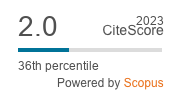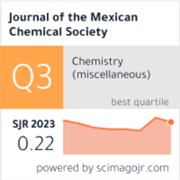Studies on the Development of New Efficient Corrosion Inhibitors for Crude Oil Pipelines: Electrochemical Impedance Spectroscopy Results for 1,8-Naphthyridines
DOI:
https://doi.org/10.29356/jmcs.v57i1.234Keywords:
1, 8-Naphthyridines, corrosion inhibitor, Friedländer synthesis, electrochemical impedance spectroscopy, inhibition efficiencyAbstract
Five 1,8-naphthyridines were tested as corrosion inhibitors, including three non-previously reported 3-alkyl-1,8-naphthyridines. All were produced via the extended Friedländer synthesis, that for 3-alkyl-1,8-naphthyridines involves the earliest use of aliphatic aldehydes. Fragmentation pattern in MS for 3-alkyl-1,8-naphthyridines shows a remarkable parallel with that exhibited by 3-alkylpyridines. Electrochemical Impedance Spectroscopy (EIS) was used to assess the inhibiting properties of these compounds on samples of API X52 carbon steel pipelines immersed in oilfield-related water. Except for one of the molecules tested, the inhibition efficiency (IE%) values were significantly higher than that calculated for a reference commercial inhibitor.Downloads
Download data is not yet available.
Downloads
Published
2017-10-12
Issue
Section
Regular Articles
License
Authors who publish with this journal agree to the following terms:
- Authors retain copyright and grant the journal right of first publication with the work simultaneously licensed under a Creative Commons Attribution License that allows others to share the work with an acknowledgement of the work's authorship and initial publication in this journal.
- Authors are able to enter into separate, additional contractual arrangements for the non-exclusive distribution of the journal's published version of the work (e.g., post it to an institutional repository or publish it in a book), with an acknowledgement of its initial publication in this journal.









